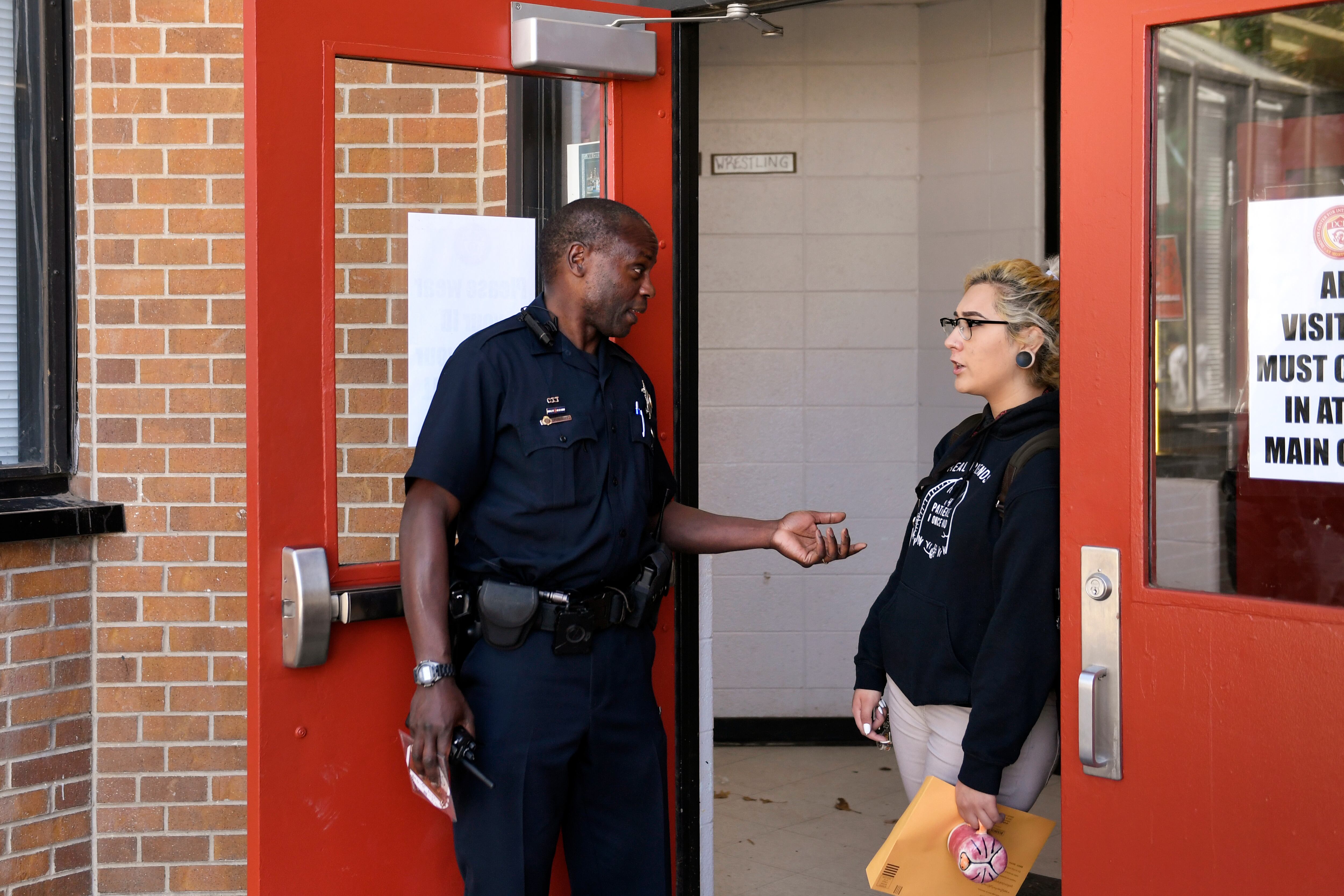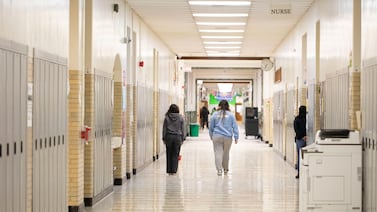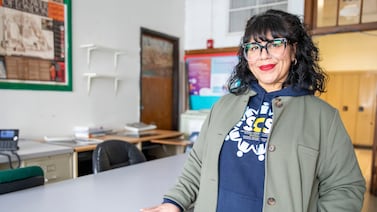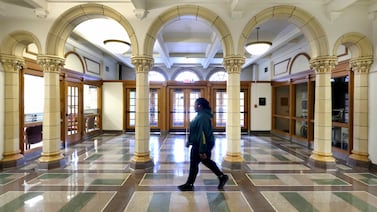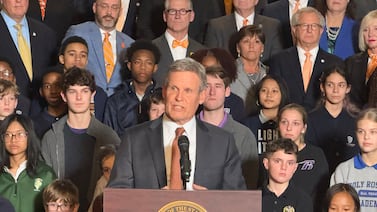Police officers will be phased out of working in Denver’s public schools over the next year, with all school resource officers gone from middle and high schools by June 2021.
The Denver school board voted unanimously Thursday to end Denver Public Schools’ contract with the Denver Police Department to provide school resource officers.
The vote comes after weeks of local and nationwide protests against racist policing sparked by the death of George Floyd, an unarmed Black man killed by a white police officer in Minneapolis.
“What we saw in our streets was a reaction to what we will no longer tolerate,” said board Vice President Jennifer Bacon, who drafted the resolution to end the police contract along with board member Tay Anderson. “This topic is not new or knee-jerk.”
The vote represents a victory for community activists who have pressed the district for more than a decade to remove sworn officers from campus because of the higher rate at which students of color are referred to law enforcement.
Denver Public Schools’ $720,000 contract with Denver police provided the district with 18 school resource officers this past school year. The district also has its own force of more than 100 unarmed and armed campus security officers who will continue to provide security for Denver schools.
Before the board voted Thursday, it heard both from educators, parents, and community members who support removing police from schools and those who don’t.
Derek Hawkins, a dean at Dr. Martin Luther King, Jr. Early College, said the process to remove police — which went from a public announcement to a vote in six days — was rushed. He and others said school resource officers are role models for students.
“Some have made it seem the SROs are wearing helmets and riot gear, coming to our schools to issue tickets,” Hawkins said. “I see something different.”
TaNesha Carter, who graduated from the former Montbello High School in 2012, said she had a positive relationship with the officer at her school.
“Officer Henry was not like a police officer in our eyes as students,” Carter said. “He was there to protect us. Even when there were situations where students needed to go to jail, he was there to mentor them through that process.”
Others spoke about negative encounters with police at school. Graduate Tiera Brown said being referred to law enforcement as a 13-year-old middle schooler was traumatizing. Priscilla Sandoval said her teenage son was repeatedly searched by police who found nothing.
Eloisa Palacio said her 10-year-old son, who has attention deficit hyperactivity disorder, ended up in court after contact with police at school. The court dismissed his case, she said.
“Students need support, not to be treated as criminal,” Palacio said.
Jen Jackson, principal at Academy of Urban Learning, said her school decided several years ago to redirect funding for a school resource officer to hire more counselors.
“When we employ police in our schools over mental health counselors, over nurses, over arts education, we are saying as a district that’s where our values lie,” Jackson said.
The resolution passed by the board reduces the number of school resource officers — police officers who are specially trained to work with youth — by 25% by Dec. 31, which would eliminate at least four officers. The rest will be removed by June 4, 2021.
The resolution also directs the superintendent to “redefine school safety” in Denver Public Schools and clarify the role that law enforcement should play.
It says the superintendent and community members should craft a district policy that ensures students will no longer be ticketed, arrested, or referred to law enforcement “unless there are no other available alternatives for addressing imminent threats of serious harm.”
And the resolution directs the superintendent to create a monthly school discipline report that would include the number of students ticketed and arrested, the number of students handcuffed, and the number of times police are called to schools, among other information.
State data shows Denver’s Black students are disproportionately referred to law enforcement, ticketed, and arrested at school. One in four tickets or arrests in the 2018-19 school year involved Black students, even though only about one in seven students are Black, according to data from the Colorado Department of Criminal Justice.
“We have the capacity to respond, not just with a raised fist or a cardboard sign,” said board member Brad Laurvick, “but as an institution, we can respond with policy for change.”

